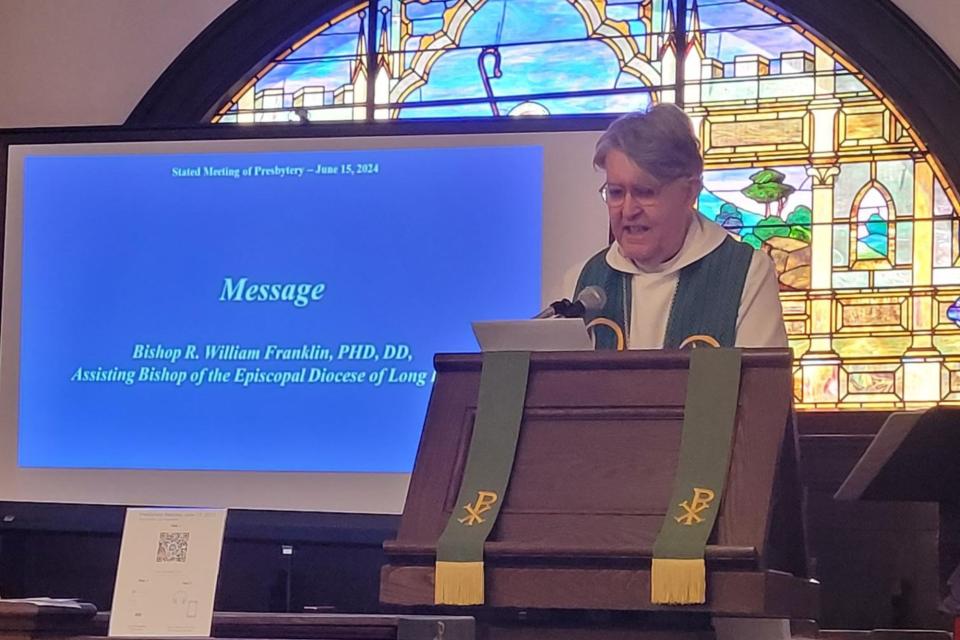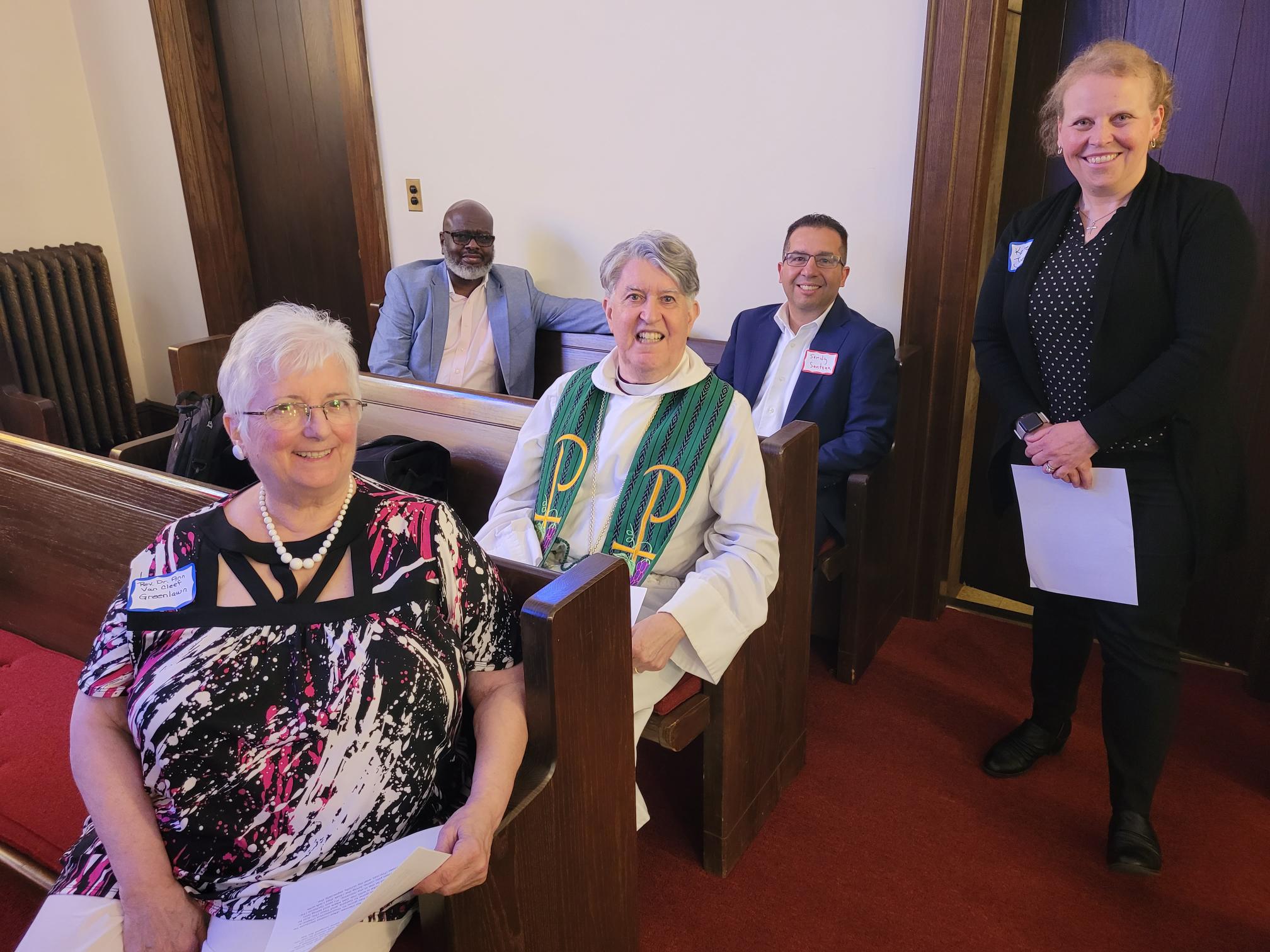This article was also published by Episcopal News Service.
In a pioneering moment for ecumenical relations on Long Island, The Rt. Rev. R. William Franklin, Assisting Bishop of the Episcopal Diocese of Long Island, became the first bishop to preach at a gathering of The Presbytery of Long Island – the regional body representing local Presbyterian congregations – this past Saturday, June 15, 2024.
Bishop Franklin’s message comes amid growing momentum in the Episcopalians and Presbyterians in Conversation (EPIC) initiative, which has brought the two denominations together in Long Island to explore opportunities for deeper collaboration and dialogue.
This development is particularly pertinent ahead of the upcoming national gatherings of the Episcopal Church and the PCUSA, respectively General Convention and General Assembly. General Convention delegates will consider resolution A042, which acknowledges the Episcopal-Presbyterian Agreement on Local Sharing of Ministries, affirms the growing number of local ministries between the denominations, authorizes the continuation of bi-lateral dialogue, and encourages prayerful consideration by all Episcopalians of deepening relations with the Presbyterian Church (U.S.A.).
This proposed resolution builds on the significant milestone of the 2008 agreement between the denominations which acknowledged each other’s churches, ministries, and sacraments as valid and authentic, allowed for Eucharistic hospitality, and encouraged continued dialogue towards full reconciliation and interchangeability of ministers.
EPIC co-convener and Episcopal priest, the Rev. Matt Tees, has a personal connection to the legislation as a former Presbyterian and grandson of a Presbyterian minister. Fr. Tees says that, right now, the largest challenge EPIC is facing is informational. “All the leaders in our cohort have thus far been enthusiastic, engaging in dialogue with respect and a commitment to understanding each other more fully. There are challenges and concerns around key differences in our denominations, but this resolution simply allows us to continue the dialogue, learn more about the other’s traditions and doctrine, and explore what increased unity and partnership would look like.”

